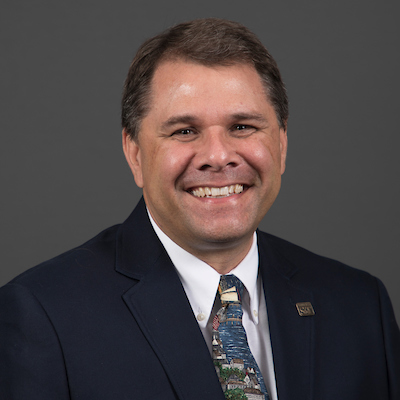Message from the Chair

Welcome to the Department of Materials Science and Engineering (MSE). MSE is the proud home of two unique degree programs in the U.S.A. - Metallurgical Engineering and Ceramic Engineering. The department offers BS, MS, and PhD degrees in both Ceramic Engineering and Metallurgical Engineering, MS and PhD degrees in Materials Science and Engineering, and a minor in Biomedical Engineering. We are the 8th largest MSE department in the United States based on undergraduate enrollment. Missouri S&T is internationally for our MSE graduate education and cutting-edge research in many areas of ceramics, metals, and materials. Since 2014, our department has tripled its research productivity.
The Ceramic Engineering field involves the development and manufacturing of inorganic non-metallic materials, including biomaterials, refractories and ultrahigh temperature materials, glass and glass-ceramic materials, electronic materials, cementitious materials, structural materials, and even ceramic composites that can be comprised of any of the above. Undergraduate students in Ceramic Engineering learn about the development of glass and polycrystalline ceramics starting from their raw materials to processing methods with a focus on designing specific physical and chemical properties for the targeted application.
The Metallurgical Engineering field involves the extraction, production, and manufacturing of base metals and alloys of iron, aluminum, copper, and many other non-ferrous metals. Undergraduate students in Metallurgical Engineering learn about extraction of metal from raw feed (ores and recycled materials), the processing of metals to produce ferrous and non-ferrous alloys, design of metallic materials with specific mechanical, physical, and chemical properties, and the manufacturing of components from metal and alloys by subtractive and additive techniques.
Materials science and engineering is an enabling engineering discipline, as the other engineering disciplines rely on the development of new and improved materials to drive innovation. Key employers for our students include all of the major industries in technical innovation including, aerospace, automotive, biomedical, defense, electronics, energy, manufacturing, nuclear, optical, and others.
I encourage you to review our website and learn more about our great programs, staff, faculty, and students in the Materials Science and Engineering department.
Dr. Michael S. Moats
Professor of Metallurgical Engineering
Chair of Materials Science and Engineering

Follow Materials Science and Engineering